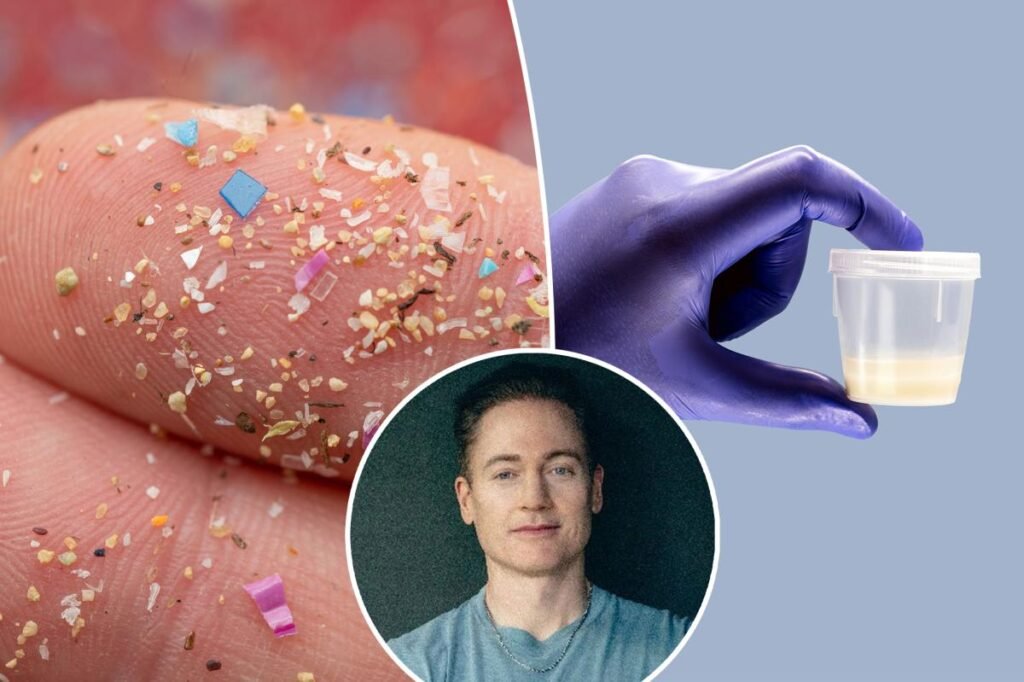Famed biohacker Bryan Johnson is giving new meaning to the term “sperm washing.”
Sperm washing is a lab technique that isolates healthy, active little guys from seminal fluid and debris for use in fertility procedures like intrauterine insemination (IUI) and in vitro fertilization (IVF).
As part of his quest for eternal life, Johnson said he has now found a way to improve the quality of his swim team by removing microplastics — those tiny, ubiquitous fragments that slough off larger plastics as they degrade.
The concentration of microplastics in Johnson’s ejaculate dropped from 165 particles per milliliter in November 2024 to 20 particles per milliliter in July 2025, he revealed this week on X.
“The therapy we think most responsible for this reduction is sauna as it also eliminated most environmental toxins in my body, including those linked to various plastics,” wrote Johnson, 48.
Johnson has been promoting the use of dry saunas, a high-heat room with low humidity.
He uses a dry sauna set to 200 degrees Fahrenheit every day for 20 minutes while applying an ice pack to his groin area to “safeguard testicular and sperm health.”
He noted a “nearly identical drop” in microplastics in his blood over the same period.
“To our knowledge, this is the first report of any correlation (esp in the same person over two timepoints) between blood and semen microplastic levels, demonstrating successful microplastic detoxification in the semen following that in the blood,” Johnson said.
Saunas are known to cause sweating, which can release a trace amount of some toxins, but studies have suggested that high heat in saunas can actually negatively affect sperm quality and production.
It’s unclear if there’s been any research on sauna use with ice applied to the genitals.
In reducing his microplastic intake, Johnson also avoids “the big no-nos” like microwaving food in plastic containers and using a plastic cutting board while relying on a reverse osmosis water system to filter his H2O.
Microplastics is an emerging research field, so there’s a lot we don’t know about these particles.
What we do know is that they are in the food we eat, the water we drink and the air we breathe.
Researchers have detected microplastics — which are smaller than a grain of rice — in the brain, heart, lungs, liver and placenta, as well as in bodily fluids such as blood, saliva, urine, breast milk and semen.
While it’s not entirely clear how microplastics affect sperm, studies suggest they can disrupt hormone function and cause oxidative stress, potentially reducing sperm count and interfering with fertility.
What’s worse, it’s difficult to track microplastic consumption and isolate the problematic sources.
Johnson’s Blueprint company sells a $135 at-home microplastics testing kit billed as a first of its kind.
Users prick their finger with a metal lancet instead of the standard plastic-encased lancet to prevent microplastic contamination.
The blood is smeared on a card that’s processed by a lab. Results arrive via email in four to six weeks.
One problem is that Blueprint doesn’t interpret the results, so it can be difficult to determine if your levels are high and how to specifically reduce your intake.
Experts generally advise avoiding single-use plastic bottles and utensils, choosing a stainless steel water bottle, swapping plastic for glass food storage, limiting processed and packaged foods and switching to natural fiber clothing.
Read the full article here












